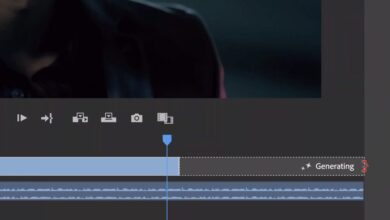The Generative AI revolution in law firms

The biggest law firms in Spain that are adopting generative artificial intelligence-based solutions
by ilaria iaquinta
In their constant pursuit of efficiency, precision, and quality in legal services, Spanish law firms are embracing the revolution of generative artificial intelligence (AI). This innovative technology is reshaping how lawyers draft documents, analyse cases, and find relevant information, marking a significant milestone in the evolution of the legal sector.
The introduction of Harvey and Leya to the Spanish market has signified a turning point in law firms’ adoption of generative AI. Harvey, based on GPT-4, utilizes natural language processing and machine learning to automate legal aspects such as contract analysis and due diligence. Though requiring human review, Harvey can generate insights and predictions based on vast amounts of data. On the other hand, Leya, developed by a European company in collaboration with the Iberley publishing house, enables the handling of large volumes of legal data, offering precise and contextualized answers through natural language processing. More than 60 international law firms already utilize their services, including several Spanish firms like Pérez-Llorca (see dedicated article).
The Spanish
Among the Spanish law firms, Cuatrecasas has stood out by announcing, in September 2023, the implementation of Cuatrecasas Expert Legal AI (Celia), a tool developed in collaboration with the startup Harvey. Following a pilot test involving over a hundred lawyers, Celia employs advanced language models (LLMs) and OpenAI and GPT4 technology to generate legal texts, analyse documents, and provide precise and contextualized legal information. This advancement complements the firm’s previous initiatives such as data anonymization and automated legal document review.
Garrigues has developed, with the involvement of over 150 professionals from the firm (lawyers and technologists), Garrigues Gaia, its proprietary generative AI platform, backed by a €64 million investment in digital transformation over the last five years (see dedicated article). The application combines various technologies to offer a wide range of specialized legal services and provides different internally trained models to all its professionals, further integrated with enriched commercial models to adjust their behaviour. Additionally, Garrigues has established Garrigues Digital Businesses, a technological environment that promotes the development of legal tech products.
Over the past year, Uría Menéndez has conducted pilots with some generative AI software to assess its usefulness and recently incorporated Harvey into the daily routine of many lawyers within the law firm to assist them in daily tasks such as consultation, document review, and information extraction. The firm’s intention is to use this project to analyse its real utility and see if it indeed brings about a change in lawyers’ productivity for future projects with such solutions. Additionally, the firm is preparing new projects using generative AI in the field of knowledge management and is analysing the utility of such technologies in specific use cases (review of judgments, data extraction/anonymization, etc.).
Among the top Spanish-origin law firms, Gómez-Acebo & Pombo is currently developing its own digital tool. Other national firms ranked in the 2022 top 50 law firms by turnover are adopting generative AI instruments. Ecija employs various programs, including MS Copilot, for tasks such as contract analysis and legal software design, and plans to explore further applications in the future. Lener has internally developed its own document information extraction system using Open AI technology, to be implemented in all areas of the firm. Meanwhile, Ceca has been using Chat GPT since September 2023 for various tasks and is considering integrating additional technologies such as Bigle Legal and improvements in legal database search engines.



